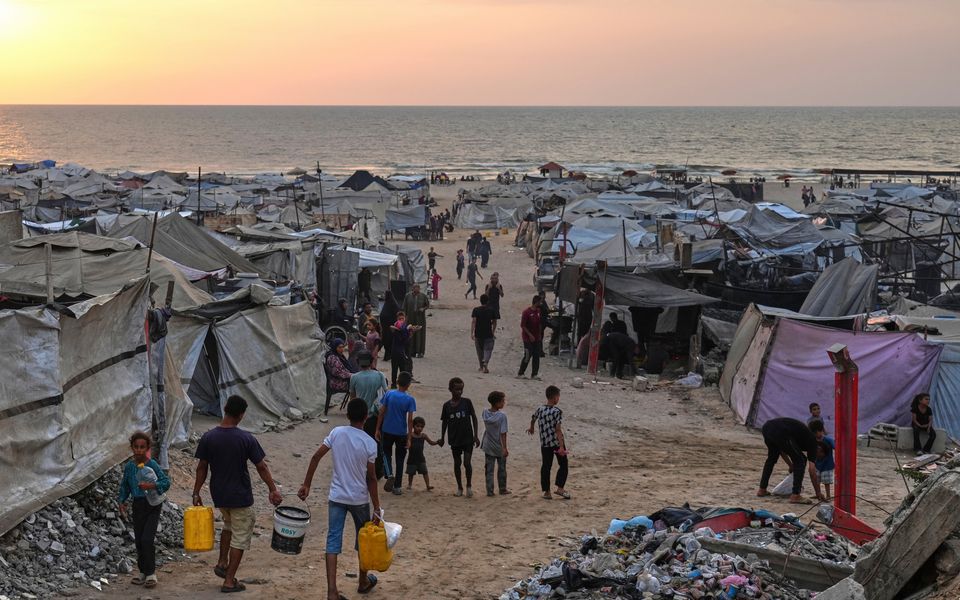
Displaced Palestinians walk through a makeshift camp along the beach in Gaza City, on August 10, 2025. [Jehad Alshrafi/AP)
Greece is navigating a delicate diplomatic path in the Middle East, balancing its strategic ties with Israel against growing international criticism of Prime Minister Benjamin Netanyahu’s government.
Athens recently joined the United Kingdom, Denmark, France and Slovenia in a UN Security Council statement condemning the expansion of Israeli military operations in Gaza. Signed by Greece’s charge d’affaires at the UN, Yiannis Stamatelos, the statement said any annexation of territory would violate international law, called for immediate humanitarian aid delivery in cooperation with the UN, demanded the unconditional release of all Hamas-held hostages, and reaffirmed support for a two-state solution alongside Israel’s right to exist in peace and security.
Since January, when Greece began its two-year Security Council term, it has backed positions critical of Israel over Gaza’s worsening humanitarian crisis. This includes a covert humanitarian operation Saturday, when two Greek Air Force transport planes dropped 8.5 tons of food into Gaza, with Israeli and Jordanian coordination.
Prime Minister Kyriakos Mitsotakis has repeatedly spoken with Netanyahu, Israeli President Isaac Herzog and Palestinian Authority President Mahmoud Abbas. Greek diplomacy remains active in the region, often without public disclosure, reflecting close coordination with Israel while maintaining strong ties with Arab states such as Saudi Arabia, Jordan and Egypt.
Domestically, the government faces a political balance: While most Greeks support the strategic relationship with Israel, the humanitarian disaster in Gaza is fueling criticism. That sensitivity has grown amid Israel’s strong tourism presence in Greece and occasional local reactions.
Officials see the country’s regional posture as both an international and internal political priority – aligning with Israel while safeguarding relations across the Arab world.
